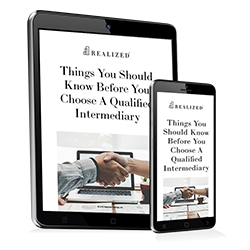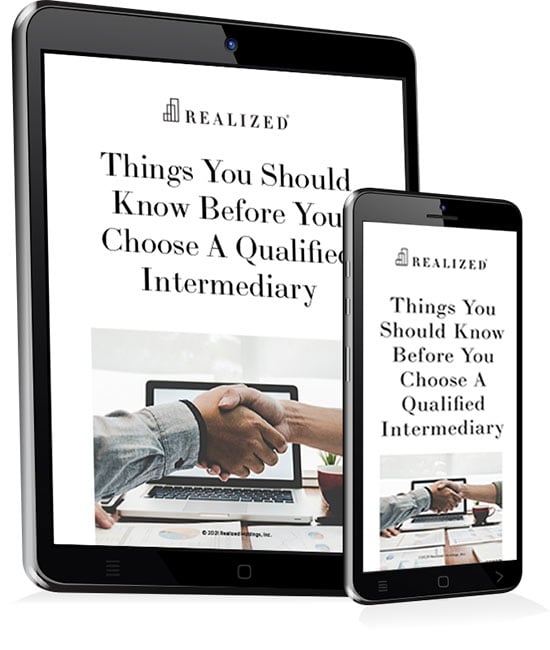
An essential part of the 1031 exchange is the inclusion of a qualified intermediary, or QI. That QI could be considered the cornerstone of a successful exchange; its job is to hold proceeds from the sale of the relinquished property, until closing on the replacement property. If you are the exchanger in the process, your QI ensures you never touch those funds.
Given that money is involved with like-kind exchanges (or any real estate sale, for that matter), it might make sense that a banking institution could serve as a qualified intermediary, at least, in theory. After all, you trust your designated bank with savings, checking, CDs, and other funds, right? So, can a bank be a qualified intermediary?
The short answer to this question is “yes . . . but.” “A” bank could serve as a qualified intermediary. “Your” bank? No.
What CAN'T be a QI
While the U.S. Treasury Department and IRS don’t specify QI requirements, these two agencies are exacting when it comes to defining disqualified entities. Specifically, the QI must be an independent party, which is 100% neutral from any of your dealings. The goal with this is to establish an independent relationship between yourself and the QI.
It means you, the exchanger, can’t act as your own qualified intermediary. Neither can your employees, employers, or family members.
The following also are disqualified, as long as they have operated, in any way, as your agents within a two-year period, ending on the date of the relinquished property’s transfer:
- Attorney
- Accountant
- Real estate broker
- Investment broker or banker
- Tax advisor
You might notice banks aren’t on the above list. This is because banks could be considered a gray area when it comes to QIs.
Caveat Banker
If you google the term “qualified intermediary” and “banks,” you’ll likely discover that many well-known financial institutions are offering QI or qualified trustee services. While this might be tempting -- banks, after all, are in the business of money -- it’s essential to proceed with caution if you decide to go this route.
The American Apartment Owners Association points out that banks could be considered disqualified QIs when it comes to 1031 exchanges, due to the potential for pre-existing relationships. For example, if your checking account, CD, or money market is stashed with Zion Bank or Wells Fargo, stay away from their qualified intermediary services. Those accounts could be considered a pre-existing relationship, at least in the eyes of the IRS. That pre-existing relationship could put that QI into the “disqualified” category, meaning your 1031 exchange is void. The end result could be an unanticipated tax bill.
The Power of the Non-Relationship
When it comes to employing a bank as a QI, the following should be considered to ensure the IRS doesn’t disallow your tax deferral.
- The financial institution’s previous qualified intermediary experience. If the bank won’t provide you with a track record, find another QI.
- Your previous relationship with that bank. If you have one, or have had one in the past, find another QI.
Finally, as is the case with anything involving real estate and taxes, it’s a good idea to run information through your CPA or tax advisor before proceeding.
This material is for general information and educational purposes only. Information is based on data gathered from what we believe are reliable sources. It is not guaranteed as to accuracy, does not purport to be complete and is not intended to be used as a primary basis for investment decisions. It should also not be construed as advice, meeting the particular investment needs of any investor. Realized does not provide tax or legal advice. This material is not a substitute for seeking the advice of a qualified professional for your individual situation. Costs associated with a 1031 transaction may impact investor returns, and may outweigh tax benefits.



